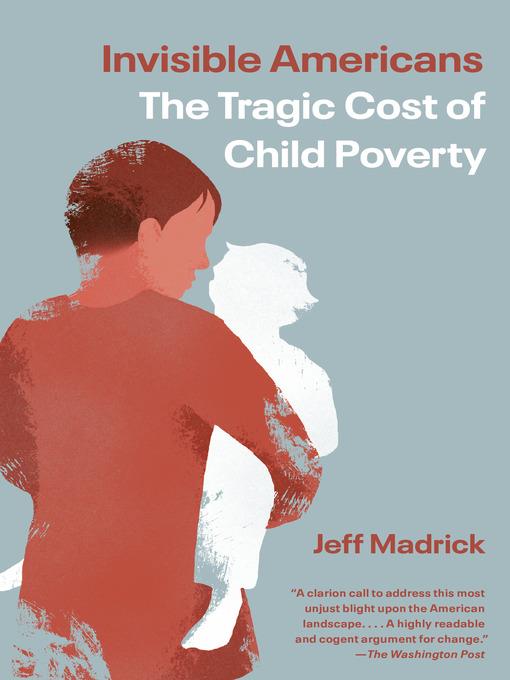
Invisible Americans
The Tragic Cost of Child Poverty
- اطلاعات
- نقد و بررسی
- دیدگاه کاربران
نقد و بررسی

November 1, 2019
An economics analyst proposes a simple solution to the complex problem of child poverty--give those children cash. In the acknowledgements, Madrick (Seven Bad Ideas: How Mainstream Economists Have Damaged America and the World, 2014, etc.), a contributor to the New York Review of Books and the Nation, thanks his publisher for supporting his work in general and "this book in particular, whose subject is dense and not very accessible." His approach, heavy on statistics and critique of policy in programs known by acronyms, seems intended more to influence policymakers, government officials, and liberal activists rather than tug at the heartstrings of the public at large. Yet he builds a strong case that child poverty in America is "moral tragedy," with as many as 25% of American children suffering from such deprivation. He systematically traces the cycle, beginning with prenatal care (or lack thereof) and continuing through food and housing insecurities, economically segregated schools with substandard resources, and poor employment prospects. If our economic policies are keeping such a large percentage of children in such a cycle of poverty, why does society permit it? Because we don't agree on the severity of the problem or where the poverty line should be set. We don't agree on whose fault it is, often blaming the poor for bad habits, little initiative, and a tendency to have children they can't support. In other words, the "culture of poverty," which Madrick attacks forcefully, particularly in regard to the black community. "Ideological battles over the origins of poverty," writes the author, "are not an abstraction--they have consequences for the poor, for policy and for a way that Americans understand who is to blame for poverty." We have Social Security to help keep older citizens out of poverty; we need something similar for the young. "I believe," writes Madrick, "we should provide monthly, substantial, and unconditional cash allowances for all children through disbursements to their families." A useful book that reveals what might be considered a secret shame but that is hiding in plain sight.
COPYRIGHT(2019) Kirkus Reviews, ALL RIGHTS RESERVED.

December 1, 2019
Madrick (Seven Bad Ideas) unpacks the complicated history of poverty in America, focusing on child poverty and its devastating effects. This socioeconomic study utilizes extensive secondary sources to make a compelling argument for cash allowances to reduce the number of children living in poverty in the United States today. Natural experiments from Europe, Canada, and a Native American tribe offer insight into how child cash allowances correlate to long-term benefits of a child's physical and mental health, as well as education performance. Madrick dispels poverty myths created during the Reagan and Clinton administrations, reinforcing that cash allowances positively impact a child's welfare whereas cutting funds increases the likelihood that a child will fail to thrive without reducing poverty significantly. VERDICT With passionate advocacy, Madrick addresses a systemic problem with a simple solution. His argument will appeal to those who champion economic policy change that centers the child.--Angela Forret, State Lib. of Iowa
Copyright 2019 Library Journal, LLC Used with permission.

December 15, 2019
Tens of millions of children in the U.S. live below the poverty line. In this thoroughly researched account, Madrick (Seven Bad Ideas, 2014) shows, through statistics and anecdotes, how people living in poverty do not receive the type nor the amount of assistance necessary to change their lives for the better. Whether people in poverty are hindered by restrictions on how funds can be spent, by being offered only partial solutions (such as employment opportunities that don't include childcare options), or simply by not receiving enough (insufficient food to last through the end of the month, for example), children bear the burden of these deficits. Madrick asserts that these kids know they're poor, and live "not merely in deprivation but also in shame. They see themselves as irredeemable outsiders." His solution is to provide substantial and unconditional cash allowances every month so that children's needs can be met by timely and immediate solutions. Madrick's research shows that current efforts are woefully inadequate, and he makes a reasonable and passionate plea for change.(Reprinted with permission of Booklist, copyright 2019, American Library Association.)




دیدگاه کاربران